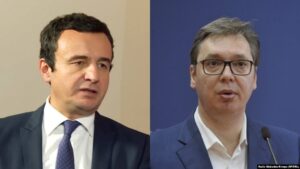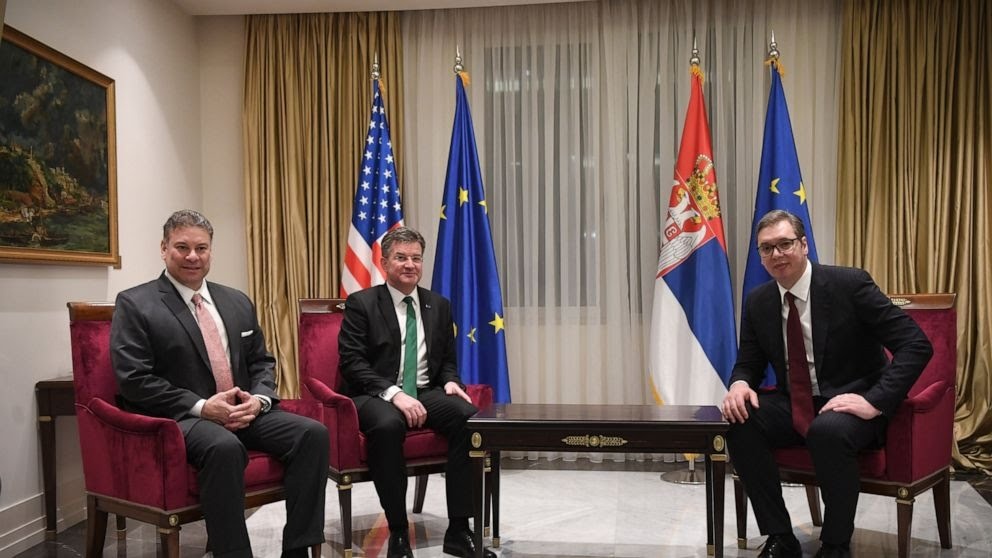Serbia-Kosovo Talks Fail To Make Progress Despite EU Optimism
Serbia-Kosovo — First round of talks between the leaders of Serbia and Kosovo on June 15 in Brussels failed to make progress towards normalizing relations between the two Balkan neighbors.

Within hours of the meeting, the United States and European Union reiterated that they would keep up joint efforts at reconciliation between the bitterly divided former Yugoslav republics.
“We intend to further strengthen our joint engagement in the Western Balkans, including through the EU-facilitated dialogue between Belgrade and Pristina on normalization of their relations, and by supporting key reforms for EU integration,” said a combined statement following a summit among U.S. President Joe Biden, European Commission President Ursula von der Leyen, and European Council chief Charles Michel.
Western Balkan countries are at different stages of the integration process with the European Union.
Kosovo declared independence from Serbia in 2008, nearly a decade after the war between ethnic Albanian separatists and the forces of rump Yugoslavia. The war ended after a 78-day NATO bombing campaign that drove Belgrade’s troops out.
Kosovo’s independence has been recognized by more than 100 countries including the United States and all but five of the European Union’s 27 member states. But Serbia still considers the territory a southern province, and is supported by Russia and China.
Since the start of the EU-brokered negotiations 11 years ago, Belgrade and Pristina have agreed on a number of issues including free travel and trade. But they remained far apart on Kosovo’s independence.
The meeting in Brussels on June 15 was also the first since Kosovar Prime Minister Albin Kurti, a left-wing reformist, claimed a landmark victory in February’s parliamentary elections — pledging to take a new tack in talks with Serbian President Aleksandar Vucic.

The two leaders gave slightly differing accounts of the meeting, although both acknowledged the lack of progress.
“We will take part in this process which is difficult,” he told Kosovar media, adding: “The Serbian side talked about old proposals, we brought four new proposals which were refused by the Serbian side.”
Despite EU foreign policy chief Josep Borrell’s initially optimistic assessment that “there is a new momentum” in discussing the unsolved issues of the Western Balkans, EU envoy Miroslav Lajcak admitted that “it was not an easy meeting.”
“Both leaders had a very open and frank exchange on what they each want from the dialogue,” Lajcak said.
Washington and Brussels insist that normalization of relations between Belgrade and Pristina is essential for their further integration into Euro-Atlantic institutions.



